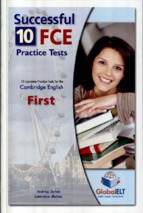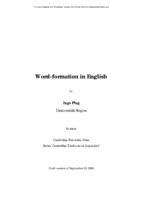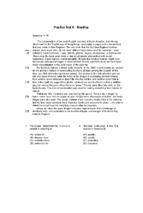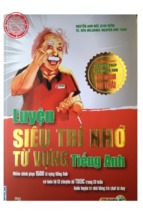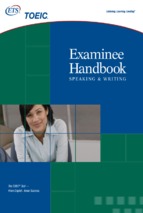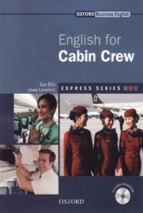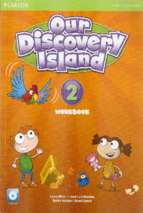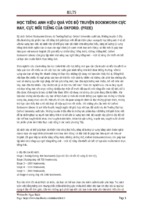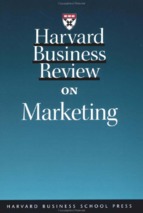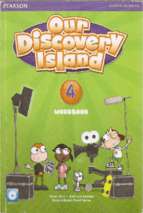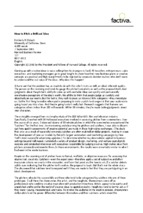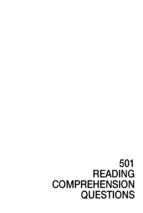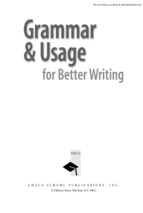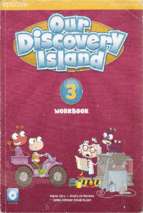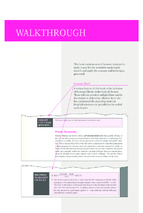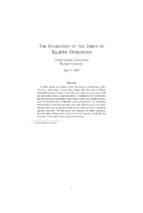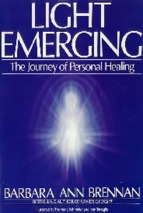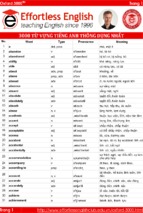Saddlebook eBook
Y
R
A
L
U
VOC AB
MEDIA AND
MARKETPLACE
WORDS
◆ Print Ads and TV Commercials
◆ Electronic Media
◆ Recognizing Propaganda
◆ Consumer Awareness
VOCABULARY
in context
JOANNE SUTER
1
VOCABULARY
iin
n ccontext
o n te x t
EVERYDAY LIVING WORDS
HISTORY
MEDIA
AND
AND
MUSIC, ART,
SCIENCE
GEOGRAPHY WORDS
MARKETPLACE WORDS
AND
AND
WORKPLACE
LITERATURE WORDS
TECHNOLOGY WORDS
AND
CAREER WORDS
Three Watson
Irvine, CA 92618-2767
E-Mail:
[email protected]
Website: www.sdlback.com
Development and Production: Laurel Associates, Inc.
Cover Design: Elisa Ligon
Interior Illustrations: Katherine Urrutia, Debra A. LaPalm, C. S. Arts
Copyright © 2002 by Saddleback Educational Publishing. All rights reserved.
No part of this book may be reproduced in any form or by any means, electronic
or mechanical, including photocopying, recording, or by any information storage
and retrieval system, without the written permission of the publisher.
ISBN 1-56254-396-2
Printed in the United States of America
07 06 05 04 03
9 8 7 6 5 4 3 2 1
2
CONTENTS
▼ Introduction .....................
4
UNIT 3 Preview ............................ 55
LESSON
UNIT 1 Preview .............................. 5
LESSON
1 Unit 1 Glossary ....................... 6
2 Advertisers Take Aim at
Heads and Hearts ................ 9
3 As Safe as Money in
the Bank! ............................. 12
4 Freedom of the Press:
1 Unit 3 Glossary ..................... 56
2 Book and Music Clubs ....... 59
3 Find It in the
Classified Ads ..................... 62
4 The Media Stirs
Things Up ............................ 65
5 Credit Cards: Protecting
Your Plastic ......................... 68
The Trial of John Peter
Zenger ................................... 15
6 Trademarks ......................... 71
5 Read It and Buy! ................ 18
7 Vocabulary Stretch ............. 74
6 Letters to the Editor .......... 21
▼ Unit 3 Review ........................ 77
7 Vocabulary Stretch ............. 24
▼ Unit 1 Review ........................ 27
UNIT 4 Preview ............................ 80
LESSON
1 Unit 4 Glossary ..................... 81
UNIT 2 Preview ............................ 30
LESSON
2 Attending an Auction ........ 84
1 Unit 2 Glossary ..................... 31
3 News Services ..................... 87
2 Speed Sells ........................... 34
4 How to Complain . . . and
3 Ernie Pyle,
Get Results! ......................... 90
War Correspondent ............ 37
5 Consumer Rights ................ 93
4 www.groceries.com ............. 40
6 Editorial Cartoons ............. 96
5 Give It a Try! ....................... 43
7 Vocabulary Stretch ............. 99
6 Television: Society’s
▼ Unit 4 Review ...................... 102
Mirror ................................... 46
7 Vocabulary Stretch ............. 49
▼ End-of-Book Test .........
105
▼ Unit 2 Review ........................ 52
▼ Word List ......................
109
3
INTRODUCTION
Welcome to VOCABULARY IN CONTEXT!
A well-developed vocabulary pays off in many important
ways. Better-than-average “word power” makes it easier to
understand everything you read and hear—from textbook
assignments to TV news reports or instructions on how to repair
a bicycle. And word power obviously increases your effectiveness
as a communicator. Think about it: As far as other people are
concerned, your ideas are only as convincing as the words you
use to express them. In other words, the vocabulary you use when
you speak or write always significantly adds or detracts from
what you have to say.
VOCABULARY IN CONTEXT was written especially for you.
The program was designed to enrich your personal “word bank”
with many hundreds of high-frequency and challenging words.
There are six thematic books in the series—Everyday Living
Words, Workplace and Career Words, Science and
Technology Words, Media and Marketplace Words, History
and Geography Words, and Music, Art, and Literature
Words. Each worktext presents topic-related readings with key
terms in context. Follow-up exercises provide a wide variety of
practice activities to help you unlock the meanings of unfamiliar
words. These strategies include the study of synonyms and
antonyms; grammatical word forms; word roots, prefixes, and
suffixes; connotations; and the efficient use of a dictionary and
thesaurus. Thinking skills, such as drawing conclusions and
completing analogies, are included as reinforcement.
A word of advice: Don’t stop “thinking about words” when
you finish this program. A first-class vocabulary must be
constantly renewed! In order to earn a reputation as a firstrate communicator, you must incorporate the new words you
learn into your everyday speech and writing.
4
UNIT 1
MEDIA AND MARKETPLACE WORDS
PREVIEW
Here’s an introduction to the vocabulary terms, skills, and concepts you will study in
this unit. Answers are upside down on the bottom of the page.
TRUE OR FALSE?
Write T or F to show whether each statement is true or false.
1. _____ Adding the prefix ful- to the noun color makes the
adjective colorful.
2. _____ Billboard and layout are examples of compound words.
3. _____ The word deposit can be used as both a noun and a verb.
4. _____ An advertiser is someone who reads the ads before shopping.
5. _____ The abbreviation for ounce is oz.
6. _____ The words freedom and liberty are antonyms.
7. _____ Readers are likely to find opinions in editorials.
8. _____ The Latin root vita means “life.”
SPELLING
Circle the correctly spelled word in each group.
2. magazine
magizine
corparation
controvershul
corperation
1. F 2. T 3. T 4. F 5. T 6. F 7. T 8. T
1. consumer 2. magazine 3. controversial 4. corporation
4. corporation
controversial
magusine
TRUE OR FALSE?
3. contraversail
consumor
SPELLING:
consumer
ANSWERS:
1. cunsomar
5
UNIT 1
Lesson 1
MEDIA AND MARKETPLACE WORDS
GLOSSARY
A glossary is an alphabetical list of unusual or specialized words from a
certain field of knowledge. Following are some important words that relate to
marketing and the media.
advertiser a person or group who
publicly praises a product so that
people will want to buy it
commercial a paid advertisement on
radio or television
consumer a person who buys things
for his or her personal use
controversial describes something
that is being debated or argued
about
magazine a booklet-style publication
containing stories, articles, and
pictures that is published monthly
or weekly
deposit money placed in a bank for
safekeeping
newspaper a daily or weekly
publication containing news,
opinions, advertisements, and
photographs printed on large, folded
sheets of paper
editor a person who prepares
manuscripts for publication
objective having to do with facts
rather than opinions
editorial an article in a magazine or
newspaper, or a talk on television
or radio, that presents the opinion
of the owner or staff
opinion a belief based on what one
thinks to be true; a judgment
effective capable of producing the
desired results
endorse to give support or approval
to a product or cause
guarantees a company’s promises
that something will be done if their
product or service is unsatisfactory
6
insurance a company’s contract
guaranteeing a client that a certain
sum of money will be paid to cover
any losses
press newspapers, magazines, and
other such printed material; reporters
who work for such publications
product something made by nature or
manufactured by human beings
publisher a person or business that
puts out and sells books, magazines,
newspapers, and other printed
materials
VOCABULARY IN CONTEXT
Complete each sentence with a word from the glossary. Use context clues for help.
1. As members of the ____________________, news reporters were
allowed into the important meeting.
2. When Nellie earned $50.00, she made a $40.00 bank
____________________ and kept $10.00 to spend.
3. The ____________________ claimed that Growpher Super Pellets
would make lawns greener overnight.
4. Superstar Horton Hornblower was hired to ____________________
Crispy Flakesters as his cereal of choice.
5. As a ____________________ of many goods and services, you should
think carefully before making choices and spending your money!
6. The ____________________ policy promised to pay for the cost of
replacing stolen goods.
MULTIPLE-MEANING WORDS
Some words have entirely different meanings when they’re used in different contexts.
Write the word from the glossary that matches each pair of definitions below.
1. ____________________ a. a paid advertisement on radio or
television (noun)
b. having to do with business or trade
(adjective)
2. ____________________ a. something one tries to reach; a goal or
purpose (noun)
b. having to do with facts rather than
opinions (adjective)
7
USING GLOSSARY WORDS
Solve the crossword puzzle by
completing the sentences below
with words from the glossary.
1
2
C
O
ACROSS
2. Your ___ is your
personal viewpoint
on a topic.
3
4
4. Rubber boots are
the only ___ that
factory makes.
5
5. The publisher
recommended a
candidate in his
newspaper ___.
G
P
E
6
E
6. An ___ shampoo
makes your hair
manageable.
DOWN
3. The company offered a written
___ that defective products
would be replaced.
1. We are not in agreement
on that ___ topic.
SELECTING EXAMPLES
Circle the one word that is not an example of each boldface topic.
1. publications:
2. people:
magazine
consumer
newspaper
editor
3. things that aim to sell:
5. things a person could buy:
8
guarantee
advertiser
4. things that make promises:
consumer
deposit
editorial
product
publisher
commercial
guarantee
magazine
insurance
consumer
UNIT 1
MEDIA AND MARKETPLACE WORDS
Lesson 2
Advertisers Take Aim at Heads and Hearts
Turn on the TV,
open a magazine, or
drive down a city
street. What do you
see? Ads! Billboards,
commercials, and colorful page
layouts are all around us. Each
advertisement is aimed at persuading
the consumer to buy, buy, and buy
some more!
What do wise consumers do when
they see an ad? They ask themselves,
“Is this message aimed at my heart
or aimed at my brain?” Advertisers
make a conscious decision to appeal
to feelings and emotions—or to logic
and intelligence.
Imagine a vacuum cleaner ad
that describes the Swooper. It pictures
a family lounging in a sparkling clean
house because the Swooper leaves
them so much free time. This ad
appeals to emotions—to everyone’s
desire to enjoy leisure time and
escape hard work.
Now imagine a Swooper ad that
compares the features of two popular
vacuum cleaners. The
Swooper is lighter,
quieter, and less costly
than the other vacuum.
This ad appeals to logic
and intelligence. The comparison
shows that the Swooper is clearly the
wise buy.
Some ads use famous people to
sell their product. Testimonials by
celebrities are most often aimed at
emotions. A famous basketball star
is selling soda pop. Is there any
logical reason why a sports figure
should have special knowledge of
beverages? Probably not—but
emotions make people relate to the
star. Advertisers want consumers to
transfer their admiration of the
celebrity to admiration of the product.
Ads that are colorful, funny, and
exciting are enjoyable. But it’s
important to understand what
advertisers are doing. Be aware of
ads that appeal to your emotions.
Look for facts and logical reasons when
you make your decisions to buy.
WORD SEARCH
1. What ten-letter noun from the reading
means “a paid advertisement on radio
or television”?
_________________________
c
9
2. What ten-letter noun from the reading
means “the act of noting the similarities
of two or more things”?
_________________________
c
3. What eleven-letter noun from the
reading means “a well-known person’s
statement praising a product”?
_________________________
t
ANTONYMS
Match each word in the first column with its antonym (word with the opposite
meaning) in the second column.
1. _____ celebrity
a. stupidity
2. _____ intelligence
b. dislike
3. _____ admiration
c. unknown
4. _____ appeal
d. unaware
5. _____ conscious
e. repel
SYNONYMS
Complete the crossword puzzle.
Clue words are synonyms (words
with similar meanings) of words
from the reading.
1
P
2
L
3
C
ACROSS
4
E
2. free time
5. periodical
DOWN
1. a good
2. resting
3. purchaser
4. feelings
10
5
M
EMOTIONAL WORDS
Why would a manufacturer name a vacuum cleaner the Swooper? Perhaps because
the word swoop suggests grace, ease of movement, and a gliding action.
1. Write three names that
suggest desirable qualities
for an automobile.
2. Write three names that
suggest good qualities
for a breakfast cereal.
_____________________________
_____________________________
_____________________________
_____________________________
_____________________________
_____________________________
CATEGORIZING WORDS
Read the following ad copy. Decide whether each boldface word takes aim at the consumer’s
emotions or intelligence. List the word under the proper heading.
The SKIMMER-SCOOTER is the newest way to get around! A rear-mounted motor adds
reliable power when needed. Easy-action hand brakes guarantee a safe ride and fast
stops. Freedom can be yours as you zoom along on your streamlined SKIMMERSKOOTER. The SKIMMER-SCOOTER is simple to operate. It’s economical too, costing
just pennies a week to power. Buy a SKIMMER-SCOOTER—it’s an exciting way to get
where you’re going with flair!
FEELINGS/EMOTIONS
LOGIC/INTELLIGENCE
______________________ ______________________
______________________
______________________ ______________________
______________________
______________________ ______________________
______________________
______________________
SHORTENED WORDS
• The short forms of some words are common in our language. For example, we often say
“photo” instead of “photograph.” Write the complete word for these items from the reading.
1. ad = _______________________
2. TV = _______________________
• Now write the commonly used short form of each of the following words.
3. professional = _______________
5. microphone = ________________
4. memorandum = _____________
6. situation comedy = ___________
11
UNIT 1
Lesson 3
MEDIA AND MARKETPLACE WORDS
As Safe as Money in the Bank!
Each Depositor Insured to $100,000
People often say “It’s
They might rush to close
as safe as money in the
their bank accounts.
bank” when they are
If that happened, the
FEDERAL DEPOSIT INSURANCE CORPORATION
describing something
bank could be driven
that is well-protected. Do you know out of business. Because of the FDIC,
what safeguards your dollars when bank customers are more likely to
you make a bank deposit?
disregard rumors and leave their
During America’s Great Depression
in the 1930s, many banks failed and
customers lost their savings. That’s
why, in 1933, the U.S. Congress
created the Federal Deposit Insurance
Corporation. The FDIC was meant to
rebuild public confidence in America’s
banking system. It guaranteed the
safety of depositors’ money. The
FDIC insures bank deposits up to
$100,000. If a bank fails, the FDIC
will replace depositors’ funds up to
that amount.
The FDIC does more than boost
public confidence. It also helps the
banks. What could happen when
customers hear that a bank is having
problems? Depositors could panic.
accounts open. The FDIC assures
people that their money will be
available when they want it. It gives
them the confidence they need.
Most banks have insurance—
either from the FDIC or from other
agencies. In 1985, however, several
savings and loan associations in Ohio
went out of business. Their funds were
not insured—so depositors lost their
money. That’s why it’s important
for depositors to make sure that their
banks are insured. What should they
do if they have more than $100,000
in bank savings? To make certain that
all of their funds are secure, depositors
may decide to open accounts in
several banks.
WORD SEARCH
1. What four-letter noun from the reading
means “a place of business for keeping,
exchanging, or lending money”?
12
_________________________
b
2. What seven-letter noun from the reading,
when used with the word bank, means
“money deposited and held ready for
withdrawal by the depositor”?
_________________________
a
3. What two words from the reading name
a period in the early 1930s when many
businesses closed and banks failed? _____________
________________
D
G
SYNONYMS
Complete the puzzle. Clue
words are synonyms (words
with similar meanings)
of words in the reading.
1
2
A
C
ACROSS
3
1. organizations
4. safe, protected
R
DOWN
1. accessible,
obtainable
2. trust, faith
3. gossip, hearsay
4
S
PARTS OF SPEECH
Many words can be used as more than one part of speech. First notice that the
boldface word in each sentence below is used as a noun. Then write new sentences,
using each boldface word as a verb.
1. If you make a bank deposit, do you know what safeguards your dollars?
_________________________________________________________________
2. A bank panic can drive the bank out of business.
_________________________________________________________________
3. The FDIC gives bank customers guarantees of protection.
_________________________________________________________________
4. The safeguards against loss make depositors feel secure.
_________________________________________________________________
13
ABBREVIATIONS
The names of many government and financial agencies are better known by abbreviations.
FBI, for example, is the abbreviation for the Federal Bureau of Investigation. Write a letter
by each number to match an abbreviation with the correct agency.
1. _____ FDIC
a. Federal Communications Commission
2. _____ FICA
b. Food and Drug Administration
3. _____ FAA
c. Federal Deposit Insurance Corporation
4. _____ DEQ
d. Federal Insurance Contributions Act
5. _____ FDA
e. Savings and Loan
6. _____ S & L
f. Federal Trade Commission
7. _____ IRS
g. Federal Aviation Administration
8. _____ FEMA
h. Federal Emergency Management Agency
9. _____ FCC
i. Department of Environmental Quality
10. _____ FTC
j. Internal Revenue Service
COMMONLY CONFUSED WORDS
The verbs assure and insure are both used in the reading. Because they look and
sound somewhat alike, these words are sometimes confused. Read the following
definitions. Then circle the word that correctly completes each sentence.
assure = to make a person sure of something, to convince
insure = to get or give a contract guaranteeing a customer that a loss will be covered
1. Most drivers ( insure / assure ) their cars against damage and theft.
2. “I ( insure / assure ) you that your money is safe!” said the banker.
3. How can I ( insure / assure ) you that I’ll be there if you need me?
4. The doctor gave me her ( insurance / assurance ) that my disease
could be cured.
14
UNIT 1
MEDIA AND MARKETPLACE WORDS
Lesson 4
Freedom of the Press: The Trial of John Peter Zenger
On November 17, 1734, John
Peter Zenger was arrested. Zenger,
the publisher of a newspaper
called the New York
Weekly Journal, had
dared to print some
controversial articles.
America’s colonies
were still under
British control at this
time. The articles were
written by people who sharply
opposed British rule. They criticized
William Cosby, the colony’s governor,
who had been appointed by the King
of England. Although Zenger did not
write the articles himself, he took
responsibility for their content.
Governor Cosby was outraged. He
had Zenger arrested. His complaint
was that Zenger was printing false
information about him. The governor
also accused Zenger of trying to incite
a revolt.
Before he went on trial in
August 1735, Zenger was in jail for
nine months. Philadelphia lawyer
Andrew Hamilton represented
Zenger. Hamilton admitted that
Zenger had published the articles. But
he insisted that every word that
Zenger had printed was true. He went
on to say that Zenger—and every
American—had the
right to speak and
write the truth!
The jury listened to
Hamilton’s arguments.
They heard him
declare that he was
not pleading “the
cause of a poor
printer, nor of New York alone,” but
“the cause of liberty.” The jury found
John Peter Zenger not guilty of any
crime. He was set free.
When American patriots wrote
the United States Constitution, they
remembered John Peter Zenger’s trial.
Thomas Jefferson declared, “Our
liberty depends on the freedom of the
press.” And Benjamin Franklin
described freedom of the press as “a
liberty which every Pennsylvanian
would fight and die for.”
To this day, the first amendment
to the Constitution clearly guarantees
this liberty. It says: “Congress shall
make no law abridging freedom of
speech or of the press.”
15
WORD SEARCH
1. What eight-letter plural noun from the reading
means “places where people from distant
lands settle and live under the rule of
the country from which they came”?
___________________________
c
2. What thirteen-letter adjective from
the reading means “debatable, open
to argument”?
___________________________
c
3. What four-letter noun from the reading
means “a group of people chosen to
reach a decision in a law trial”?
___________________________
j
USING SYNONYMS AS CONTEXT CLUES
Sometimes writers will provide a synonym (word with a similar meaning) of an
unfamiliar word in the same sentence or paragraph. Notice the boldface word in the
first sentence of each item. Find and underline its synonym in the second sentence.
1. John Peter Zenger published a newspaper. The journal came
out daily.
2. Benjamin Franklin called for freedom of the press. He described
it as “a liberty which every Pennsylvanian would fight and die for.”
3. Hamilton insisted that the news articles spoke the truth. He
declared that Zenger had done nothing wrong.
4. The duty of a newspaper is to print the truth. Most publishers
take this responsibility seriously.
5. The first amendment to the Constitution guarantees freedom
of speech. This change to the original document is part of the
Bill of Rights.
6. The Constitution says, “Congress shall make no law abridging
freedom of speech or of the press.” This prevents the government
from restricting news reports.
7. The court charged Zenger with inciting a revolt. They said he was
guilty of sparking anger and discontent.
16
ANTONYMS
Complete the crossword puzzle.
Clue words are antonyms (words
with opposite meanings) of
words from the reading.
ACROSS
1
C
2
R
3
4
A
5
O
F
1. praised
4. favored
6. released
DOWN
2. agreement
6
3. denied
A
5. true
COMMONLY CONFUSED WORDS
• Two words that are spelled exactly the same may be pronounced differently and
have different meanings. Read the dictionary entries below. Notice the differences
in pronunciation and meaning.
2. content c n tent´ adjective
happy and satisfied with
what one has or is
e
1. content cän´tent noun all the
things dealt with or contained
in a piece of writing or a speech
• Now decide which definition matches the word content as it is used in each
sentence. Write 1 for the first definition or 2 for the second.
1. _____ John Peter Zenger took responsibility for the content of
the articles.
2. _____ Hamilton was not content to let an innocent man stay in prison.
3. _____ Thomas Jefferson helped determine the content of the
U.S. Constitution.
4. _____ I am content in knowing that the truth was heard!
17
UNIT 1
Lesson 5
MEDIA AND MARKETPLACE WORDS
Read It and Buy!
Advertisers are masters at attracting consumers! That’s why a close look
at ads is a lesson in the art of persuasion. As you read the following
advertisement, think about the ideas that might lure shoppers.
PET PAL: A DOG’S BEST FRIEND
Pet Pal will be your pet’s best friend
during Customer Appreciation Days,
July 14 through July 24. Visit one of
Pet Pal’s seven convenient locations and
get a FREE 32-ounce box of veterinarianendorsed Vita-Crunchers Dog Biscuits
or V ita-Cr unchers Kitty Treats. Just
present the coupon below. We’ll scan the
bar code and give you your FREE gift.
PET PAL
FREE from PET PAL
7 0 0 0 0
32-oz. box of Vita-Crunchers
Dog Biscuits or Kitty Treats.
9
Expires 7/24
7815612
VITA-CRUNCHERS
At Pet Pal, your pet’s health and
happiness come first! Whether you’re
looking for nutritious pet food, an
entertaining squeak-toy, or an effective
flea spray, you’ll find it quickly,
conveniently, and economically at Pet Pal.
18
541415
WORD SEARCH
1. What six-letter noun from the reading means
“a printed ticket or statement that gives the
holder certain rights or bonuses”?
______________________
c
2. What twelve-letter word from the reading
means “a doctor who treats animals”?
SYNONYMS
1
Complete the crossword puzzle.
Clue words are synonyms (words
with similar meanings) of words
in the reading.
ACROSS
______________________
v
C
2
3
P
L
4
B
DOWN
2. buddy
1. patron
5. experts
3. to attract
6. to approve
4. crackers
5
M
6
E
ANTONYMS
Circle the antonym (word with the opposite meaning)
of each boldface word from the reading.
1. effective
powerful
useless
2. convenient
troublesome
3. entertaining
funny
4. treats
gifts
5. nutritious
unhealthy
friendly
handsome
clean
boring
tortures
food
expensive
tasty
free
19

